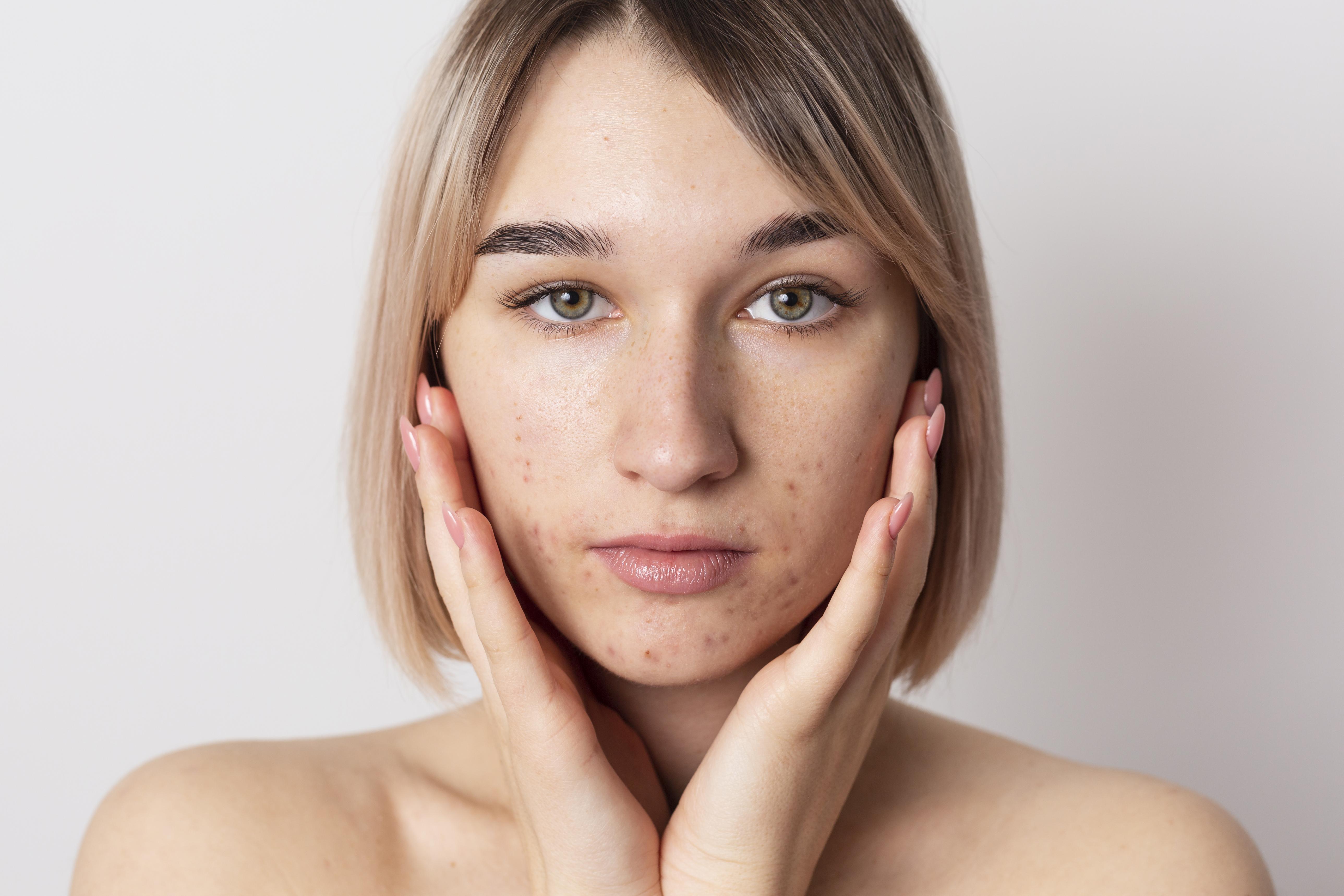Laser or Chemical Peeling for Acne Scars?
Acne Scars: Laser vs. Chemical Peeling
Acne scars are not just a skin problem but can also become a significant confidence issue for many individuals. Acne, often seen during adolescence, can leave permanent scars if not properly treated. The two most commonly used treatments for these scars today are laser therapy and chemical peeling. Which one is more effective? Which is suitable for which skin type? How should the right choice be made between these two methods frequently preferred by dermatologists in Istanbul?
In this article, we explore laser and chemical peeling treatments for acne scars in detail, with expert opinions from Assoc. Prof. Dr. Ezgi Özkur, explaining the advantages of each method and when to prefer them.
Why Do Acne Scars Form?
Acne occurs due to the inflammation of the skin’s oil glands. If this inflammation is severe and prolonged, it can damage the deeper layers of the skin, leaving scars. Some acne scars are superficial, while others may be pitted (atrophic) or dark-colored (hyperpigmented). Various treatments, such as laser therapy and chemical peeling, are used to reduce or eliminate these scars.
Laser Treatment for Acne Scars
How Laser Works: Laser treatment stimulates collagen production under the skin using controlled heat energy, promoting skin regeneration. Laser beams target damaged tissues on the surface of the skin, ensuring controlled renewal. As a result, skin tone evens out, pores tighten, and acne scars’ appearance diminishes.
Types of Lasers Used:
Fractional CO2 Laser: Effective for deep atrophic scars.
Erbium Laser: Preferred for superficial scars, with a shorter recovery time.
Picosecond Laser: Provides both pigmentation correction and tissue repair, with minimal recovery time.
Advantages:
Effective for deep scars.
Improves overall skin texture.
Noticeable results after one session (typically 3-4 sessions are recommended).
Newer lasers cause fewer side effects and have faster recovery times.
Disadvantages:
Redness and scabbing may occur for a few days post-treatment.
Sun protection is crucial.
May be more expensive compared to chemical peeling.
Chemical Peeling for Acne Scars
How Peeling Works:
Chemical peeling uses acidic solutions applied to the skin surface to exfoliate the outer layer. This process promotes cell renewal and evens out skin tone, while also stimulating collagen production.
Types of Peels Used:
Alpha Hydroxy Acids (AHA - Glycolic Acid): Effective for superficial scars and pigmentation.
Beta Hydroxy Acids (BHA - Salicylic Acid): Suitable for oily and acne-prone skin.
TCA (Trichloroacetic Acid): Preferred for medium-depth scars.
Advantages:
More affordable than laser treatments.
Very effective for superficial and pigmented scars.
Shorter recovery time post-treatment.
Evens out skin tone and adds brightness.
Disadvantages:
Limited effectiveness for deep scars.
May require more sessions (typically 4-6).
Risk of irritation and pigmentation changes if not applied properly.
When to Choose Which Method?
Laser Treatment:
For deep (atrophic) scars.
In cases of advanced acne scarring.
When quicker results are desired.
Chemical Peeling:
For superficial pigmentation scars.
When pore tightening is needed for acne-prone skin.
When a more affordable option is sought.
Combined Treatments: For Best Results
As of 2025, many dermatology clinics in Istanbul use a combination of laser and chemical peeling treatments to achieve more effective results. For example, laser treatment can rejuvenate the skin first, followed by a light chemical peel to support skin tone evenness. Such combined treatments are frequently preferred at Assoc. Prof. Dr. Ezgi Özkur’s clinic.
Post-Treatment Care
Protecting the skin after treatment is just as important as the treatment itself. To ensure lasting and healthy results, the following recommendations should be followed:
Always protect from the sun with sunscreen (SPF 50+ or higher).
Avoid peeling or abrasive treatments for the first few days.
Use recommended moisturizers and repairing creams regularly.
Avoid makeup as much as possible.
Choosing the Right Specialist for Acne Scar Treatment in Istanbul
Acne scar treatment should be personalized for each individual. Therefore, it is important to have a professional dermatologist perform a skin analysis and create a customized treatment plan instead of relying on general information. For those searching for a dermatologist in Istanbul, Assoc. Prof. Dr. Ezgi Özkur is a reliable choice, following both scientific and technological advancements.

